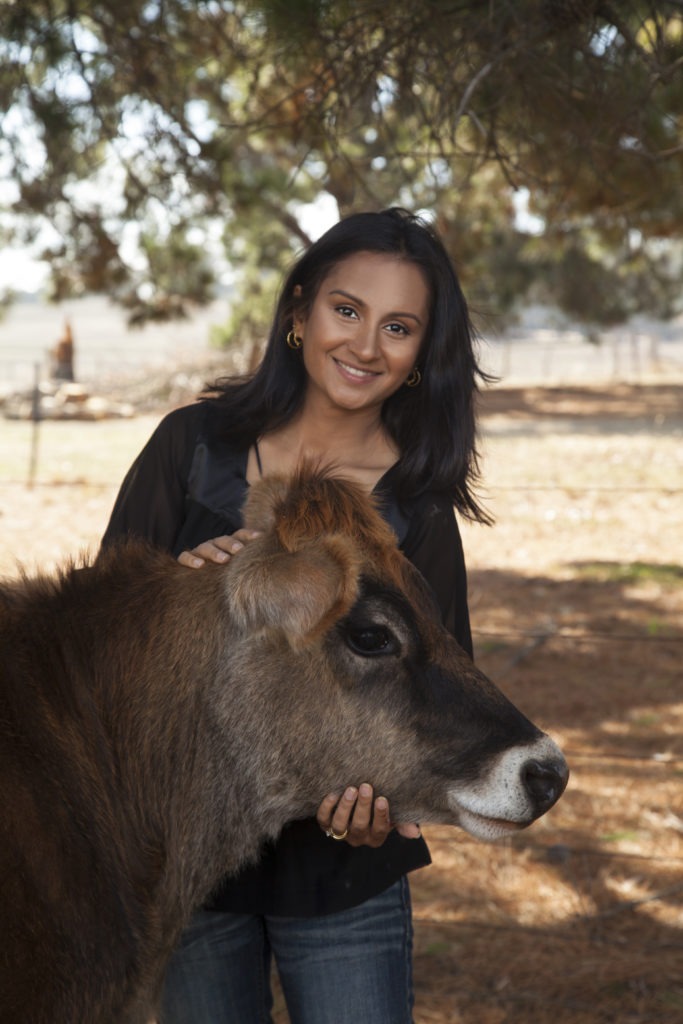By Dr. Ash Nayate
Neuropsychologist, Author and Advocate.
In vegan communities, it’s often discussed whether animal advocates should concern themselves with human oppression and how it influences one’s transition to veganism.
Veganism is, by definition, focused on minimising animal exploitation many advocates view humans as both perpetrators and enablers of animal exploitation. Therefore, it’s understandable that there’s resistance to advocacy approaches that consider the impact of human rights on animal rights.
Human rights and animal rights may seem unrelated, however, all systems of oppression are built on the same pillars of superiority, supremacy, and entitlement.
Intersectionality refers to the interconnectedness of different systems of oppression. The term was coined in the late 20th century by American scholar Kimberlé Crenshaw, to describe a ‘lens’ for ‘seeing the way in which various forms of inequality often operate together and exacerbate each other’.
Historically, writers have long discussed the intersection of race, gender, and wealth; particularly in relation to suffrage and the first and second-wave feminist movements. Since then – and particularly in the last decade – discussions of intersectionality have broadened to include not only racism, sexism, and classism, but also ableism, ageism, cissexism, and heterosexism.
And, of course, speciesism. In the animal rights movement, an intersectional approach to advocacy might consider how animal exploitation is affected by oppression based on race, disability, financial wealth or other forms of inequality.

Being against all forms of oppression is, frankly, just the right way to be. It makes no sense to fight against one form of oppression while simultaneously upholding others. It seems contradictory to seek animal liberation while also being racist, sexist, ableist, classist, cissexist, and heterosexist. And, given that our society is largely based on these forms of oppression such that these views are largely internalised – unless we’re actively working to dismantle these systems then we’re unfortunately part of the problem.
Some may view intersectionality as diverting time, energy, attention, and resources away from animal advocacy. And indeed, if the effectiveness of our advocacy was based purely on the amount of time, energy, attention, and resources we devoted to it, then this would make sense.
However, this time-equals-effectiveness viewpoint largely ignores the psychological and social mechanisms that underlie change and influence. We know that simply doubling the length of an animal rights message isn’t going to make people twice as likely to become vegan because there are other factors that determine whether someone chooses to become vegan. Factors such as motivation to change, anxiety around unfamiliarity, and social supports, to name a few. Advocacy is an art, just as much as it is a science, and its effectiveness is often predicated on the connection we’re able to make with the individual in question. This connection is enhanced by understanding their background, concerns, objections, and challenges, and showing a genuine desire to help others live a more ethical, compassionate lifestyle.
Strategically, intersectionality creates an awareness of social justice issues that allows for a nuanced approach to advocacy. Advocacy doesn’t exist in a vacuum – it occurs within a wider social climate from which we cannot remove ourselves.
Intersectionality allows us to move beyond the generic ‘go vegan’ message, to one that is specific and practical for the individual. For example, how might financial instability impact someone’s grocery shopping habits and food choices? How might a mental illness affect someone’s ability to learn about new foods and cooking techniques? How might a woman of colour struggle to maintain cultural identity if she transitions to veganism? Can we assume that individuals have the ability to procure plant-based foods, especially if they’re dependent on others?
These questions don’t exempt individuals from hearing our message, making changes, or becoming vegan. An intersectional approach to animal advocacy means having a deeper level of understanding and compassion for the challenges faced by marginalised groups in transitioning to veganism, and ensuring that these challenges aren’t overlooked by activists who may not have experienced those challenges personally.
If you would like to learn more about Dr. Ash Nayate’s work, you can follow her on Facebook and Instagram.
All image credit to Australian Vegans Journal.
Voiceless Blog Terms and Conditions: The opinions expressed on the Voiceless Blog are those of the relevant contributors and may not necessarily represent the views of Voiceless. Reliance upon any content, opinion, representation or statement contained in the article is at the sole risk of the reader. Voiceless Blog articles are protected by copyright and no part should be reproduced in any form without the prior consent of Voiceless.

